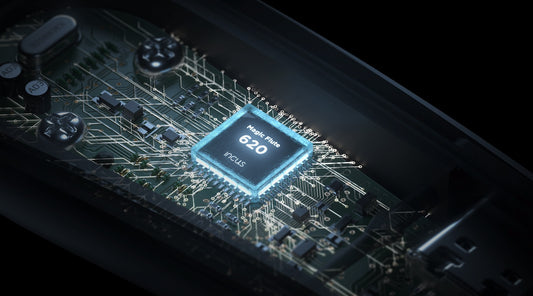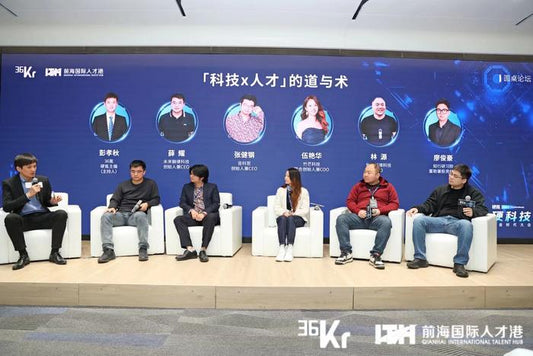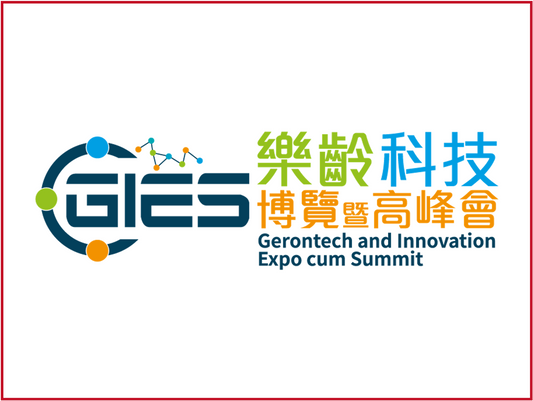We are pleased to announce that Incus has recently completed its Pre-A financing round. GRC SinoGreen Fund led this round, while Beken Corporation joined as a strategic investor. Earlier-stage investors Mainsail Investment Limited, Inno Angel Fund and Chan Yuk Ming participated as well.
What Is Next for Incus?
The proceeds will go towards research and development, marketing, and scaling operations to make hearing solutions even more accessible.
As part of the fundraising process, Incus underwent corporate restructuring and set up its new headquarter registered in Shenzhen, Guangdong, China: 音科思(深圳)技术有限公司. The new structure will enable Incus to access the broader consumer market and capital market in Mainland China. Incus maintains its Hong Kong operations and office in the Hong Kong Science Park as a graduate tenant and member of the HKSTP technology ecosystem.

Incus was founded in Hong Kong in 2016 by Calvin Zhang and his professor and mentor Professor Richard So. After its founding, Incus has filed more than 15 patent applications and built a strong team. The team currently has six PhDs from top universities and research institutions like the Hong Kong University of Science and Technology, Nagoya University in Japan and Université Nice Sophia Antipolis of France. 36% of the team has a Master’s degree or above, and 94% possess a Bachelor degree or above. Thanks to the recent fundraising, the company can now enter a development new stage.
The Chinese Hearing Aid Market Is Large and Underserved
The number of hard-of-hearing people in China is rising due to the ageing population and people's increased exposure to noise. According to data published by the Beijing Society of Audiology in 2019, as many as 72 million Chinese may have hearing loss. Among them are 60 million senior citizens. Less than 5% of them wear hearing aids according to estimates - far below the rates seen in the United States and Europe.
Currently, the Chinese hearing aid market is highly polarised:
- Overseas brands dominate the high end of the market. A decent pair of hearing aids will set consumers back 20,000 Chinese yuan (US$ 3,100) or more. Because there is little to no insurance coverage or subsidies for these products, the amount comes out of pocket.
- On the other end of the market, there are consumer electronics devices, which typically cost less than 2,000 Chinese yuan (US$ 310). These devices use cheaper components and software. Because of this, they are prone to poor sound quality, howling, and a noisy listening experience, making the wearer uncomfortable and causes difficulties when communicating.
The unfortunate consequence of this market structure is that the majority of the hard-of-individuals are left unserved.
Incus Has Redefined Hearing Devices with Smart Personal Sound Amplifiers
Incus has redefined hearing devices by combining the power of traditional hearing aids with the convenience and accessibility of consumer electronics products.
Based on years of scientific research and technology development, Incus launched Kite smart personal sound amplifier in 2020.

Kite offers hearing test and sound personalisation features powered by brain-inspired hearing algorithms to improve speech intelligibility. Featuring Intelligent Noise Reduction technology, it provides a more comfortable listening experience. Testing using the industry-standard measure Perceptual Evaluation of Speech Quality (PESQ) showed the noise reduction outperformed traditional high-end hearing aids at various signal-to-noise ratios.
The device is quick and easy to set up with the smartphone application Yinbei, which is available for both iOS and Android. Sounds from Kite are personalised based on a hearing profile obtained through a five-minute hearing test in the app.
Kite runs on a custom system-on-a-chip (SoC): Magic Flute 620.
Magic Flute 620

Magic Flute 620 was designed to achieve high performance with low power consumption at a significantly lower price than traditional hearing aids.
The design was the result of combining Incus’ expertise in acoustic research and audio processing with the efforts of the strategic investor, which is a well-known wireless chip maker and listed company.
The core algorithm in Magic Flute is based on a brain-inspired auditory model. The system simulates the biological signal operation mechanism of the human brain in a multi-person environment or a noisy environment and uses a self-learning algorithm to smartly separate signals and noises in an environment.
It amplifies the target signal and has powerful computing and processing capabilities. Unlike traditional binaural dual chips, the Magic Flute is a single chip capable of processing binaural signals simultaneously, achieving independent and coordinated processing of the left and right ears.
Founder and CEO Calvin Zhang said:
"Following this round of financing, Incus will continue to optimise its core technology and competitive advantages, with its leading brain-inspired dynamic compensation technology, acoustic feedback suppression technology, AI scenery adaptation technology, environmental noise reduction, and neural network-based sound enhancement. With the synergy of audio technology and advanced semiconductor technology, Incus builds a competitive moat."
It is worth mentioning that Incus’ shareholders include world-renowned experts in microelectronics-related fields and Emeritus Professor Ping Ko of the School of Engineering of the Hong Kong University of Science and Technology. He was previously a professor at the University of California, Berkeley, and was awarded the Solid-State Circuits Award by the Institute of Electrical and Electronics Engineers (IEEE) for his contributions to chip research and design.
"In the competitive landscape of consumer products in China, mastering advanced semiconductor chips means mastering the computing power required for algorithms. We are fortunate to be recognized by Professor Ko and have him join the Board of Directors to guide us in the continuous improvement and enhancement of the integration of algorithms and hardware to strengthen product competitiveness.”
We are grateful for the support from new and existing investors, which enables us to continue on our mission to use sound and technology to keep people connected.



